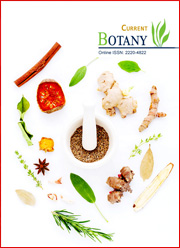Beneficial microbes promote plant growth and induce systemic resistance in sunflower against downy mildew disease caused by Plasmopara halstedii
Keywords:
PGPF, Rhizosphere, Sunflower, Plasmopara halstedii, Downy mildew, Seed priming, 1x108 cfu/ml, Root colonization, ISR.Abstract
Seven plant growth promoting fungi (PGPF) native to the rhizosphere soil were screened for their potential to promote growth and to induce resistance in sunflower against Plasmopara halstedii, an incitant of sunflower downy mildew disease. Effect of seed priming with each of these seven PGPF isolates on seed quality parameters and resistance induction were studied under in vitro and green house conditions. Root colonization ability of these PGPF was also studied under green house conditions. The results showed that seed priming with conidial suspension of PGPF at 1 x 108 cfu ml-1 significantly increased seed germination and seedling vigor compared to non primed control. Plants raised with primed seeds demonstrated a significant reduction in downy mildew disease severity and provided a maximum of 61% protection under green house conditions when compared to the untreated control. The experimental results proved that the tested PGPF, promoted growth and induced systemic resistance (ISR) in sunflower plants against the downy mildew disease caused by P. halstedii, due to their growth promoting and biocontrol abilities. Present study has revealed the fact that there is a strong correlation between root colonization and resistance induction in PGPF treated plants.



 .
.